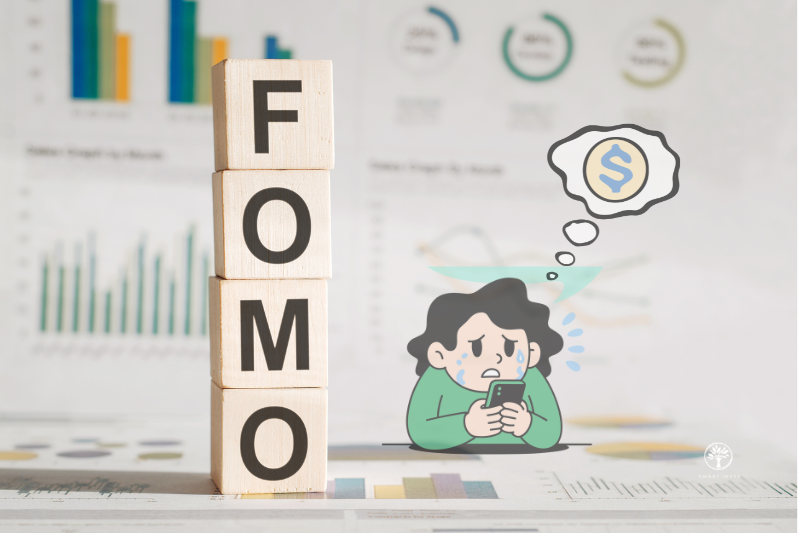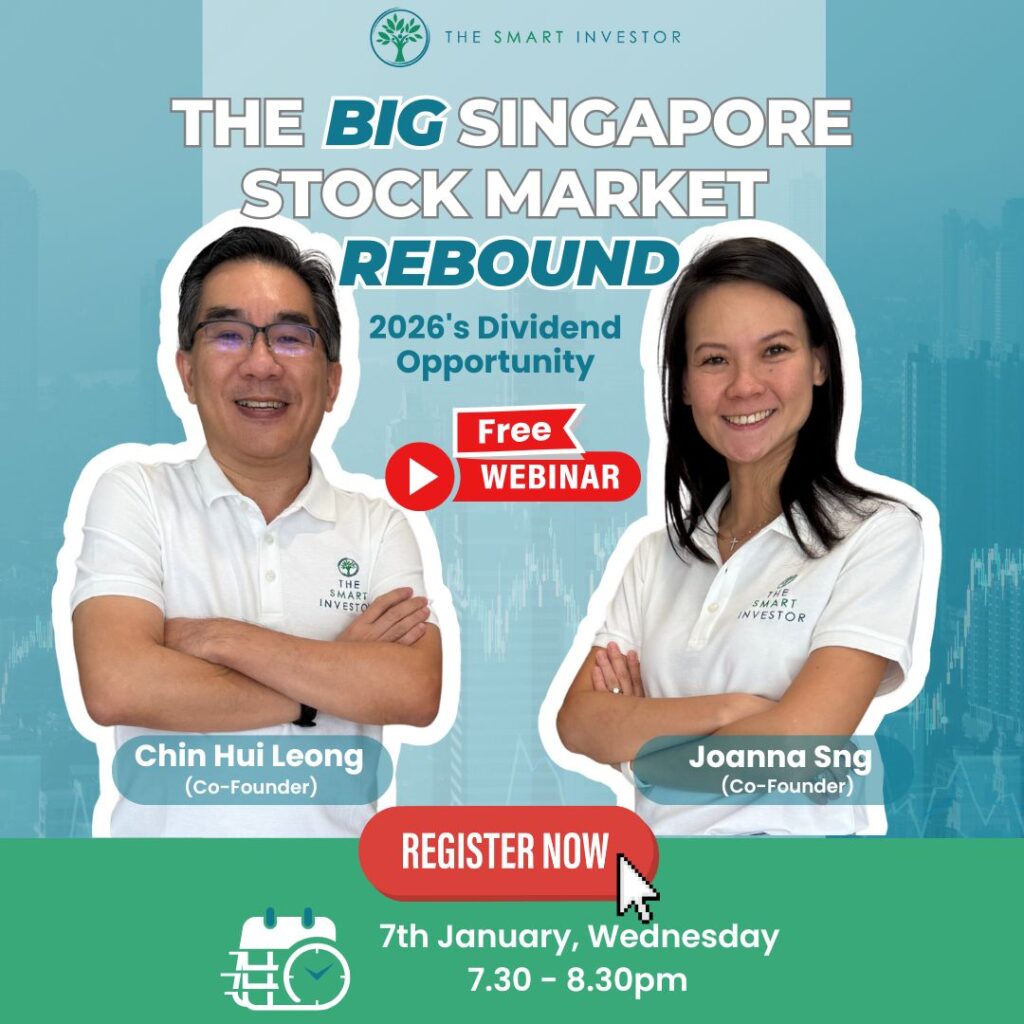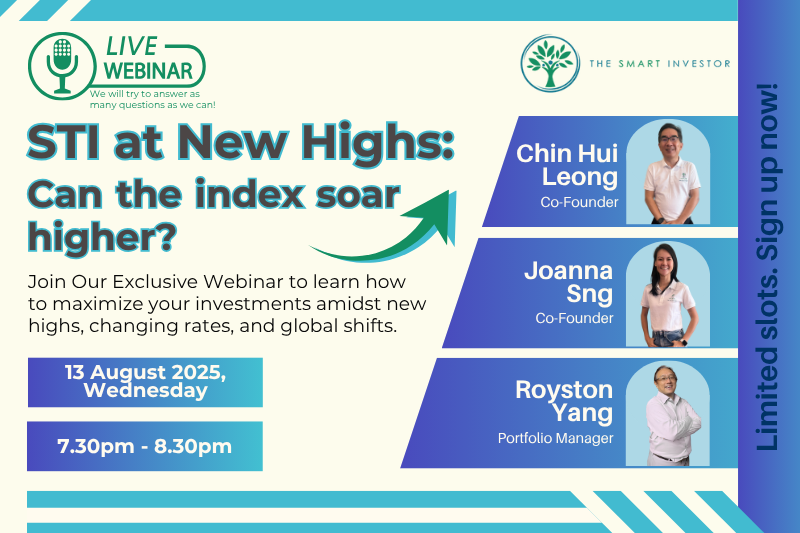Imagine this scenario: You noticed Nvidia trading at around US$110.
Shares already look expensive.
The growth was steep, the headlines glowing, and everyone seemed to be talking about AI.
You told yourself it is wiser to stay disciplined and wait for a better price.
So you waited.
Then the stock climbed.
And kept climbing.
By the time it crossed US$150, that quiet voice of regret had started whispering, I should have bought it.
When the price finally dipped in April this year, you watched closely again.
It was your second chance, but this time fear crept in.
What if the run was over?
What if the AI boom had peaked?
So, you hesitated once more.
Now Nvidia is back near its highs, and the same emotions return, only louder.
Regret for not acting sooner.
Anxiety about missing out again.
That mix of feelings is familiar to almost every investor.
It is also the perfect setup for one of the most powerful forces in the stock market: FOMO or the fear of missing out.
Why Regret Turns Into FOMO
Regret is a quiet emotion.
It starts as a small voice that say: if only I had acted sooner.
But in the stock market, regret rarely stays quiet for long.
It quickly evolves into something stronger: FOMO.
Psychologists call this regret aversion.
When we experience the pain of missing an opportunity, our minds try to make sure we never feel that pain again.
The next time a stock starts rising, that memory kicks in.
We tell ourselves, Not this time. I am going to act.
The trouble is, emotion starts to replace logic.
Instead of asking whether the stock is still a good value, we focus on the fear of being left behind.
Instead of weighing risks, we picture the profits others are making.
It is a powerful mix of two human instincts; loss aversion and herd behaviour.
We hate feeling left out, and we hate being wrong.
Combine those emotions with a rising stock price, and even the most disciplined investor can feel tempted to join the crowd.
FOMO feels urgent.
It whispers that everyone else is getting richer while you are standing still.
But in truth, it often leads to the opposite — buying high and regretting it later.
How FOMO Costs Investors Money
When FOMO takes over, logic quietly steps aside.
You stop asking Is this company worth the price? and start thinking What if it goes higher without me?
That is usually when investors get hurt.
History is full of examples.
When meme stocks like GameStop (NYSE: GME) and AMC (NYSE: AMC) exploded in 2021, many latecomers bought at the peak, driven by stories of overnight millionaires.
When reality set in, most of those gains vanished just as quickly.
It is the same story in every market cycle.
In Singapore, investors chased property developers during housing booms, glove makers during the pandemic, and technology stocks during the AI rally.
Each time, enthusiasm ran ahead of earnings, and prices eventually came back to earth.
FOMO does not just cause financial losses.
It also drains confidence.
After buying high and watching prices fall, many investors swing to the opposite extreme.
They become overly cautious or sell too early the next time.
It is an emotional pendulum that keeps swinging between fear and greed.
The result?
Investors who chase trends often underperform the very markets they are trying to beat.
Get Smart: Breaking Free from FOMO
The first step to overcoming FOMO is recognising it for what it is: an emotion, not an investment signal.
When you feel that rush of urgency, pause and ask yourself: Would I still buy this stock if no one else were talking about it?
If the answer is no, that is a sign you are reacting to sentiment, not fundamentals.
Having a clear strategy helps too.
Whether you invest for dividends, growth, or both, a defined plan keeps your decisions anchored to long-term goals instead of short-term excitement.
Automating your investing, whether it is through regular contributions or dividend reinvestment, can also take the pressure off timing.
It replaces emotion with consistency.
Most importantly, remember this: there will always be another opportunity.
The market never stops presenting new ideas, new leaders, and new growth stories.
Missing one does not mean missing out forever.
In investing, patience is a superpower.
You do not need to chase what has already run.
You just need to stay ready for the next one, and make your move when the numbers, not emotions, line up.
That is how you turn FOMO into something far more powerful: confidence built on discipline.
If you’re looking for the best value buys in the stock market, read Get Smart. It will help you spot opportunities most investors overlook. Each issue gives you the context you need to recognise bargains and act confidently. Join for free and enjoy the advantage of deep investing insight delivered straight to your inbox every week.
Follow us on Facebook, Instagram and Telegram for the latest investing news and analyses!
Disclosure: Joanna Sng owns shares of Nvidia.






